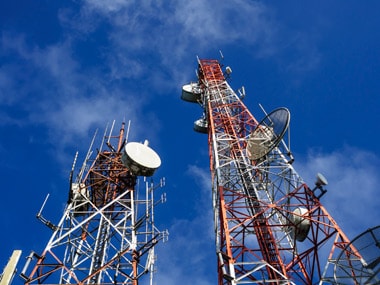New Delhi: The largest ever spectrum auction lined up by the government for September could turn out to be a disappointment unless prices of the 700 mhz band are revised downward. The government is putting on sale spectrum in bands of 700 mhz, 800 mhz, 900 mhz 1800 mhz, 2100 mhz, 2300 mhz and 2500 mhz and a total of almost 2000 mhz of spectrum should be put up for auctions. It is good move strategically since the industry can fill spectrum gaps through this auction and the government can augment its non-tax revenue receipts. But the pricing of 700 mhz band, on which hinges the overall revenue collection through auctions, is the problem. The 700 MHz band is the most expensive and most effective but is likely to generate less interest from telecom service providers at the current floor price. [caption id=“attachment_2834882” align=“alignleft” width=“380”]  Thinkstock.[/caption] The government has been eyeing Rs 98,994.93 crore from communication services this fiscal as per Budget proposals, and this amount includes proceeds from spectrum auction plus other fees levied by the Department of Telecom (DoT). It also includes arrears from auction proceeds in previous years. The estimated receipts from communication services are about double of the revised estimates for 2015-16 at Rs 56,034.35 crore. But will these ambitious targets be realised at current pricing? The government had fetched about Rs 1.10 lakh crore from the spectrum auction held in March 2015. A report from HSBC Global Research showed that actual revenue generation from the upcoming auctions would be a fraction of what the government has targeted. “Our initial analysis suggests that total proceeds from spectrum auction are unlikely to exceed $10-12 billion (about Rs 80,000 crore) and we believe a lot of spectrum might remain unsold in 700, 2300, 2500 MHz bands. We see good demand for 1800 MHz, selective demand for 2100 and 700 Mhz bands,” the report said. If this is correct, actual proceeds would be a fraction of the revenue receipts the government has targeted through these auctions. But COAI president Rajan Mathews told CNBC-TV18 in an interview that there will be some demand for 700 mhz in some circles. “There will be some demand for some circles because in some of the circles, the pricing is not too bad because as you recall, it has triggered off from 1,800 pricing. So in some of the smaller circles, the pricing is not too out of line and there maybe some interest in those circles but across the board, A circles, metros, Pan India, I don’t think there is an appetite at this point at these prices.” This year, auction of the super premium 700 mhz band would be happening for the very first time, this band is most suitable for fourth generation telecom services (4G). The government expects the sale of airwaves alone to fetch a total of Rs 5.66 lakh crore. Bids for the 700 mhz spectrum would go a long way in reaching this target At the current reserve price of Rs 11,485 crore per mhz for the 700 mhz band, the industry would have to shell out Rs 57,425 crore for 5 mhz spectrum on a pan-India basis. Trai had recommended a pan-India reserve price of Rs 11,485 crore for 700 MHz, Rs 5,819 crore for 800 MHz, Rs 3,341 crore for 900 MHz, Rs 2,873 crore for 1800 MHz, Rs 3,746 crore for 2100 MHz, and Rs 817 crore each for 2300 MHz and 2500 MHz bands. A telecom industry expert said that the 700 mhz band is unlikely to see much bidding and it is possible that the reserve price is revised downwards. This expert pointed out that Reliance Industries, which is in the best position to bid for this expensive band, may choose not to do so since it already owns a sizeable amount of the equally efficient 800 mhz band of spectrum. And other players like Bharti, Vodafone and Idea may not be able to afford this spectrum band due to pricing issues. The industry is struggling under a debt pile of well over Rs three lakh crore and buying expensive 700 mhz band will most certainly increase the debt burden on the industry. According to calculations by the Economic Times, the revenue potential of the upcoming airwaves sale is more than double of telecom services industry gross revenue of Rs 2.54 lakh crore in FY 2014-15. The Telecom panel has suggested 50% upfront payment and the rest in ten years after a 2-year moratorium for spectrum in 1800 Mhz, 2100 Mhz, 2300 Mhz bands. For airwaves in 700 Mhz, 800 Mhz, 900 Mhz bands, telcos will require to pay 25% upfront and rest in ten years after a 2-year moratorium. In the interview quoted earlier, Mathews of COAI said 1800 mhz spectrum will continue to be of principle interest to the industry in the upcoming auctions. “That is the one that is most ardently used for even 4G, long-term evolution (LTE) types of application. So that is going to be there. The next will clearly be the 2,100-2,300. 700 as I said is highly desirable but again because of the pricing, we don’t see a whole lot of actual bidding for it. So we see the 1,800-2,100-2,300, so it is not unusual to say look at those reserve prices, you can expect those spectrum bands to be principally bid for.” The industry expert quoted earlier said it is doubtful if much of 700 mhz and entire 2100 mhz can be sold. Former due to pricing issues and latter because it is fit for 3G services when the industry is focusing on LTE. This is the reason for more success in 1800 mhz, 2300, mhz and 2500 mhz bands.
The largest ever spectrum auction lined up by the government for September could turn out to be a disappointment unless prices of the 700 mhz band are revised downward.
Advertisement
End of Article


)

)
)
)
)
)
)
)
)



